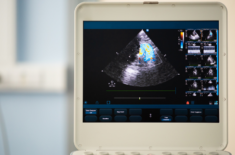Overview
Society depicts a rosy picture of motherhood, calling it a joyous time. Yet many new moms are left confused as to why they’re feeling angry, depressed, and anxious when they’re supposed to be having fun. (1)
Many studies focus on postpartum depression and other mental health issues after childbirth, but postpartum rage is often overlooked.
Anger isn’t included in the Edinburgh Postnatal Depression Scale screening tool, yet a 2018 Birth Journal study showed that it might be part of postpartum mood problems in some women. (1)(2)
Researchers haven’t paid much attention to postpartum anger, but evidence suggests that it can worsen the intensity and length of depression. (1)
What Is Postpartum Rage?
Postpartum rage is a mental health condition wherein a new mom feels bursts of extreme anger, explosiveness, or irritability without apparent reason.
Frequency, intensity, and triggers can vary, but it’s enough to make you wonder why you get so angry over simple matters. (1)
Sadly, your partner or family members might not understand that your outbursts may result from postpartum rage, leading to negative relationship effects. (1)
It doesn’t help that postpartum rage isn’t considered an official diagnosis. (3)
Instead, it’s considered part of the PMAD spectrum (perinatal mood and anxiety disorders) that women can experience from pregnancy to postpartum (the period after childbirth to around six weeks).
New moms with postpartum rage may also have postpartum depression or anxiety. (3)
Is Rage A Symptom Of PPD?
Yes. Unexplained rage or anger is a common symptom of postpartum depression (PPD). However, you can also experience postpartum rage without depressive symptoms. (4)(5)
Anger isn’t just linked to PPD but also to other mood and anxiety disorders: (3)
- Postpartum bipolar disorder
- Postpartum PTSD (post-traumatic stress disorder)
- Postpartum anxiety
- Postpartum OCD (obsessive-compulsive disorder)
The Difference Between Postpartum Rage & PPD
Postpartum rage is characterized by frequent anger outbursts, increased irritability, excessive crying, and physical anger reactions (punching someone or throwing things). (6)
Postpartum depression symptoms can include these rage symptoms, plus mood swings, having a depressed mood, and feelings of worthlessness, panic, or shame. (7)
Postpartum Anxiety & Rage
Rage isn’t an official diagnosis and can be a symptom of other mood disorders.
You can experience more outbursts of anger with postpartum rage than in postpartum anxiety, which is characterized by panic attacks, numbness and tingling, chest pain, dizziness, and a feeling of losing control. (3)
How Common Is Postpartum Rage?
Although studies about postpartum rage are limited, it can coexist with postpartum depression. Because postpartum depression is common, then this might mean that postpartum rage is also common. (1)
Can Postpartum Make You Crazy?
Postpartum psychosis is a mental illness that occurs during the postpartum period. Little is known about its causes, but physiological changes from childbirth might trigger the condition. (8)(9)
Common Targets Of Postpartum Anger & Rage
Self
Many new moms with postpartum rage might feel angry at themselves, especially after outbursts against their loved ones.
Why Am I So Furious At My Husband After Having A Baby?
Dads often get the brunt of a new mom’s anger even if they help take care of the new baby.
Childcare stress, especially if your partner doesn’t share the burden, can increase angry feelings.
Your New Baby
Some moms can also feel angry towards their new baby, although this differs from postpartum psychosis symptoms, including irrational thoughts of harming your baby or having hallucinations about your child. (1)(10)
Studies show that infant sleep (especially irregular patterns during the first weeks postpartum) can trigger a new mom’s anger state. (11)
Older Kids
Your older kids can easily become your target, too.
For many stressed-out moms, an older child’s needs or bids for attention might feel too much. Having another crying child while your hands are full with your baby’s needs might trigger an angry outburst.
Parents, Grandparents, Or In-Laws
Although they also make a good support system, your parents, in-laws, or grandparents might also trigger or become targets of your angry outbursts, especially if they have different opinions about how you should raise your new baby.
What Causes Mommy Rage?
Often, postpartum rage is caused by a combination of different factors. Some of these can include: (11)(12)
- Fatigue & sleep deprivation – Like postpartum depression, baby blues, or other similar conditions, postpartum anger can be due to these.
- Hormonal changes – Progesterone and estrogen levels drop drastically right after childbirth, negatively affecting your mood.
- Different emotions – Feelings of powerlessness, doubts about your parenting skills, and anxiety can also make you feel bad.
- Your baby’s health condition – Some moms with sick babies, especially those with life-long conditions or spending time in the NICU, might feel guilty or angry over the situation.
- Fears about things you can’t control – For example, the COVID-19 pandemic increased the incidence of postpartum rage and depression. (13)
- Life disruptions – Changes to your relationships, financial situation, job, or other life troubles can also increase your postpartum anger risks.
- Lack of social support – Studies show that some moms’ anger comes from unfulfilled expectations they had from their support group. For example, the new mom expects to get help but feels angry if that support doesn’t come. (11)
- Societal expectations – Some moms also feel pressured that society expects them to be the perfect mom.
Risk Factors
These risk factors can apply to PMAD (perinatal mood and anxiety disorders), including postpartum rage: (3)
- Personal or a family member’s history of any PMAD
- Lack of support (partner or family members)
- Being the single parent
- Complicated pregnancy
- Birth trauma
- Severe premenstrual syndrome
- Thyroid changes and postpartum thyroiditis
- Fertility treatments
- Giving birth to a baby with medical or developmental challenges
- Experiencing grief or loss of a loved one during the postpartum period
- History of domestic violence
- Substance use
- Relationship issues
What Are The Symptoms Of Postpartum Rage?
Symptoms and signs can include: (6)
- Severe mood swings
- Screaming
- Swearing more often
- Struggling to control temper
- Increased irritability
- Violent thoughts followed by a flood of emotions, including shame and guilt
- Excessive crying
- Physical anger reactions (punching someone or throwing things)
- Bonding difficulty with your baby
How Do You Deal With Maternal Rage?
Here are our 21 strategies to help you cope with postpartum anger:
- Acknowledge your anger because it can be a good way to understand and avoid or reduce your triggers.
- Get enough sleep because fatigue and sleep deprivation are among the most common causes of mood disorders like postpartum rage. Rest whenever your baby is sleeping. Talk to your OB-GYN if you’re having trouble sleeping.
- Practice self-care.
- Try mindfulness meditation to redirect your thoughts.
- Practice deep breathing techniques.
- Walk away or remove yourself from the infuriating situation. You can go back when you’re calm and collected.
- Take a break for around 5-10 minutes. Give your baby to your partner or put them in a safe place, such as a crib, so that you can catch your breath.
- Splash your face with water or take a shower. If someone is caring for your baby, you can also take this time to enjoy a long bath.
- Use a journal if you don’t feel like talking about your feelings. This can also help you keep track of the days and times you felt angry, including your triggers, to help you find a pattern and determine the frequent cause of your outbursts.
- Identify your triggers and avoid them. For example, if your colicky baby’s constant crying irritates you, ask your partner for help soothing them.
- Perhaps you might want to stay away from social media because the “perfect mom” pictures can make you feel bad about yourself. But remember that social media is filled with filters and fake photos which don’t really reflect what’s happening in these other moms’ homes.
- Stop comparing yourself and your baby with your friends and their babies because everyone is different.
- Find time for fun with your partner or friends without bringing your baby along. You can hire a nanny or babysitter to enjoy your break without worrying about your baby.
- Practice gratitude, which can change your mindset as you look at things’ positive, brighter side.
- Focus only on the most important tasks and acknowledge that you don’t need to have a perfectly clean house or cook the most delicious, full-course meals.
- Take care of your well-being and mental health to speed up postpartum recovery and help reduce your postpartum rage outbursts.
- Get a postpartum doula to take care of you.
- Delegate your responsibilities because supermoms need rest, too.
- Go outside with your baby. You might be surprised how a short stroll down the block can release your angry feelings and make you feel better.
- Set your social boundaries. Learn to say ‘no,’ especially to social invitations when you aren’t up to it yet. Don’t feel pressured to show up.
- Talk about it with your support group (your partner, healthcare provider, family member, friend, or groups like Postpartum Support International and Moms Matter Now)
Postpartum Rage Treatment
Treatment options can include:
- Antidepressant medications can help you feel calm and prevent postpartum rage outbursts.
- Counseling with a mental health professional can help you understand and process your rage. They’re trained and have the experience to help you cope with your situation.
Diagnosis
Your OB-GYN might perform a postpartum mental health screening during your postpartum checkup under recommendations for new mothers by the AAP (American Academy of Pediatrics) and ACOG (American College of Obstetricians and Gynecologists).
They’ll also check for signs of anxiety, depression, or mental illness such as postpartum psychosis.
A blood test can help rule out postpartum thyroiditis, which shares similar symptoms with other postpartum mental health concerns.
How Long Does PP Rage Last?
Postpartum rage coexists with other postpartum mood disorders, particularly anxiety and depression, so it may end when these conditions are treated.
However, there’s no telling how long these disorders also last because some studies show that 25% of moms diagnosed with PPD still had depressive symptoms even up to three years after childbirth. (14)
REFERENCES
(1) Ou CH, Hall WA. Anger in the context of postnatal depression: An integrative review. Birth. University of British Columbia. 2018 Dec;45(4):336-346. doi: 10.1111/birt.12356. Epub 2018 May 20. PMID: 29781142. https://pubmed.ncbi.nlm.nih.gov/29781142/
(2) https://www.sciencedaily.com/releases/2018/06/180626113415.htm
(3) https://postpartumva.org/types-of-perinatal-mood-and-anxiety-disorders/
(4) https://journals.sagepub.com/doi/10.1111/1471-6402.00061
(5) https://www.postpartum.net/wp-content/uploads/2014/11/PSI-PMD-FACT-SHEET-2015.pdf
(6) https://thegentlecounsellor.com/postpartum-depression-and-anxiety/
(7) https://www.psychiatry.org/patients-families/postpartum-depression/what-is-postpartum-depression
(8) https://ajp.psychiatryonline.org/doi/10.1176/appi.ajp.2016.16040454
(9) https://www.researchgate.net/publication/348219902_Phenomenology_Epidemiology_and_Aetiology_of_Postpartum_Psychosis_A_Review
(10) https://www.academia.edu/16633398/A_Review_of_Postpartum_Psychosis
(11) https://bmcpregnancychildbirth.biomedcentral.com/articles/10.1186/s12884-022-04479-4
(12) https://www.ncbi.nlm.nih.gov/pmc/articles/PMC4465482/
(13) https://www.nytimes.com/2020/07/06/parenting/mom-rage-pandemic.html
(14) https://publications.aap.org/pediatrics/article/146/5/e20200857/75352/Trajectories-of-Maternal-Postpartum-Depressive












